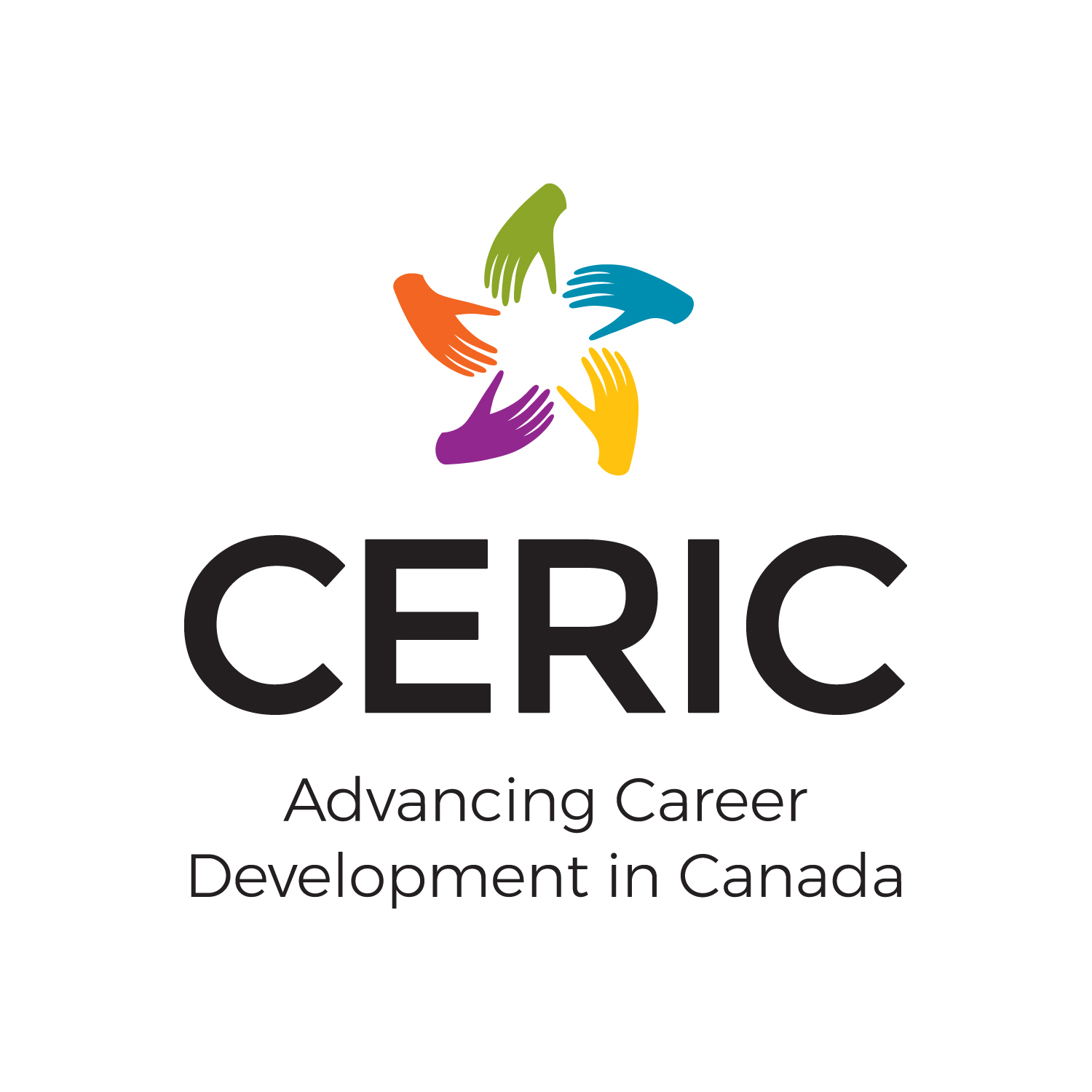|
Getting your Trinity Audio player ready...
|
Artificial intelligence (AI) is no longer a futuristic concept – it’s here, reshaping the landscape of career services and the broader labour market. As jobseekers increasingly turn to AI-powered tools for resume writing, job search strategies and career guidance, career professionals are grappling with crucial questions: What will AI mean for my job and my clients’ career prospects? How can I integrate AI tools effectively and ethically into my practice – and should I?
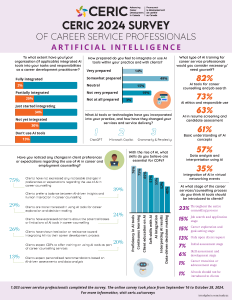
CERIC’s recent Survey of Career Service Professionals dedicated a special section to AI. It offers a snapshot into how Canadian career professionals are (and are not) using AI in their work – and why. The results reveal a field in transition, with some embracing AI’s potential while also struggling with knowledge gaps, and others hesitant to dive in amid ethical concerns and shifting client expectations. Here’s what we learned.
Dig deeper into other key themes from the survey results in this recent CareerWise blog: Facing crisis, forging opportunity: The key issues facing CDPs in Canada today
Who is using AI and how?
For some career professionals, AI has already become a valuable tool. Others remain hesitant, unsure of where it fits in their practice.
Nearly one-third (30%) of respondents have not yet integrated AI into their work, while 13% don’t use AI at all. Among the career professionals using AI:
- 34% have just started integrating AI
- 20% have partially integrated it
- 2% say AI is fully integrated into their work
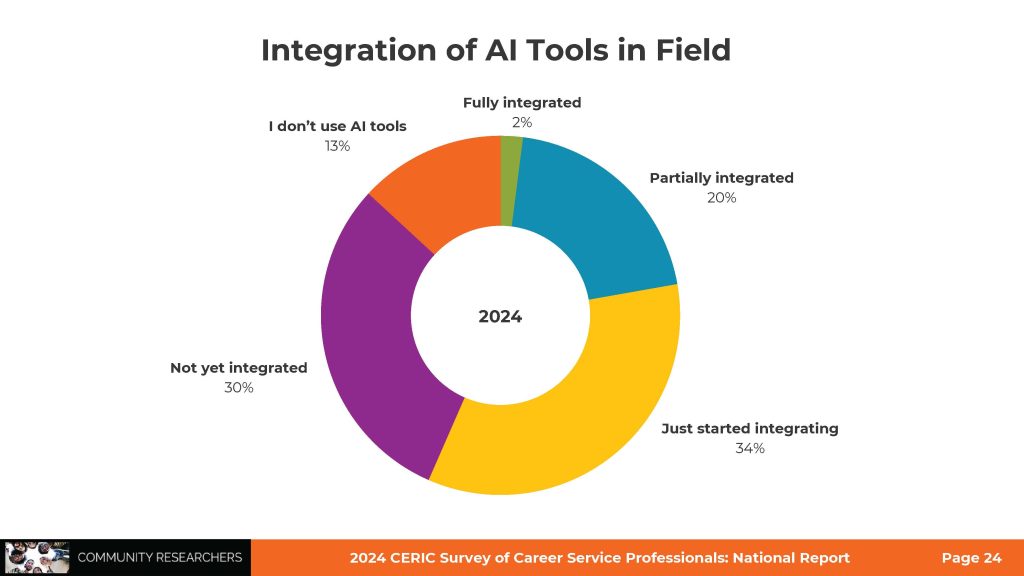
Those who are using AI are more likely to use it daily for administrative work than direct client support. However, opinions vary on when AI tools should be introduced to clients in the counselling process – if at all. One-fifth (20%) of career professionals say they’re not sure, while 23% say it should be incorporated throughout the counselling process. Others see its value in the career exploration or job search stages.
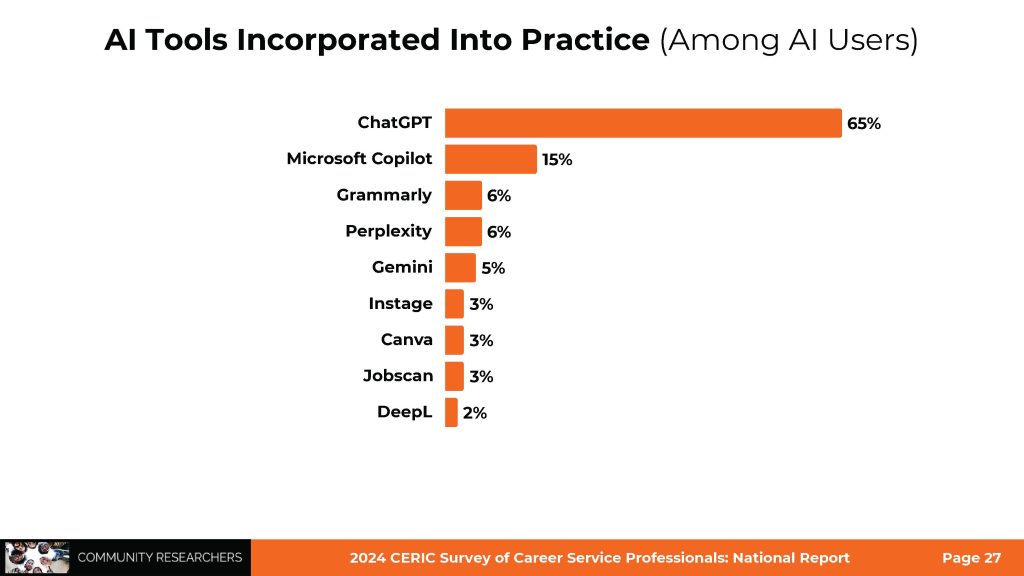
Among AI tools CDPs are using, ChatGPT dominates; 65% of self-identified AI users are incorporating it into their work. Other tools like Microsoft Copilot (15%), Grammarly (6%) and Perplexity (6%) are also making their way into career development practice.
These results highlight the ongoing dialogue about AI’s place in career development. As AI becomes more sophisticated, the need for best practices and knowledge sharing will be increasingly important.
Bridging the AI knowledge gap
For every career professional excited about AI’s potential, there’s another who is cautious – if not outright skeptical. Despite AI’s growing role, only 14% of career professionals feel “very prepared” to integrate AI into their work. Nearly half (49%) feel “somewhat prepared,” while 19% say they are “not very prepared.”
For some, lack of knowledge or access to professional development may be impeding uptake. Career professionals are seeking training on AI tools and how to leverage them for specific use cases, such as job search, data analysis and candidate assessment.
However, the survey results also reveal that ethical use of AI is also a strong consideration for career professionals. Seventy-three (73) percent say training on “AI ethics and responsible use” is needed.
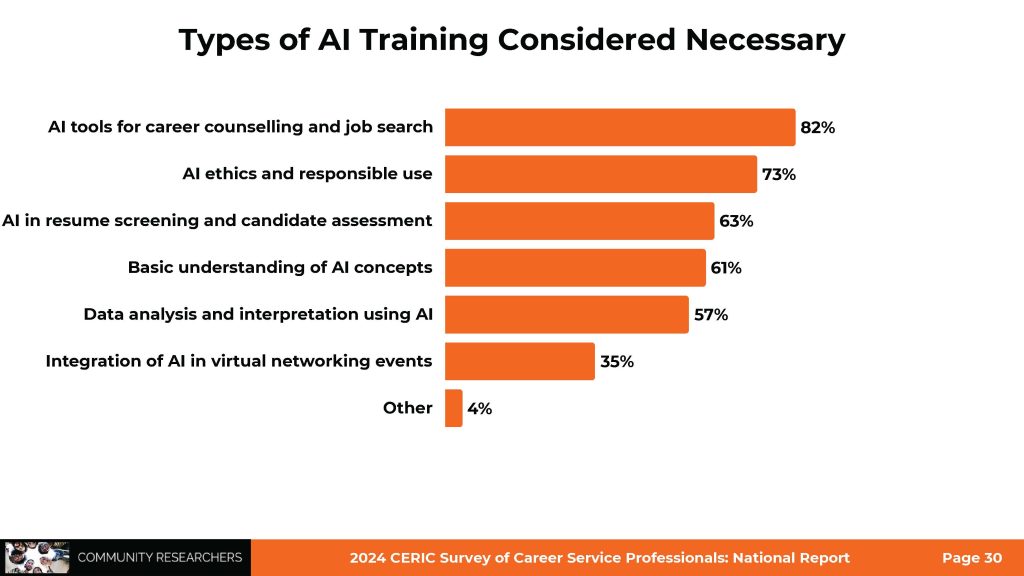
Career professionals are seeking a blend of technical and “soft skills” development related to AI. Respondents identified the top 3 essential AI skills as:
- proficiency in AI tools,
- continuous learning and
- client education on AI.
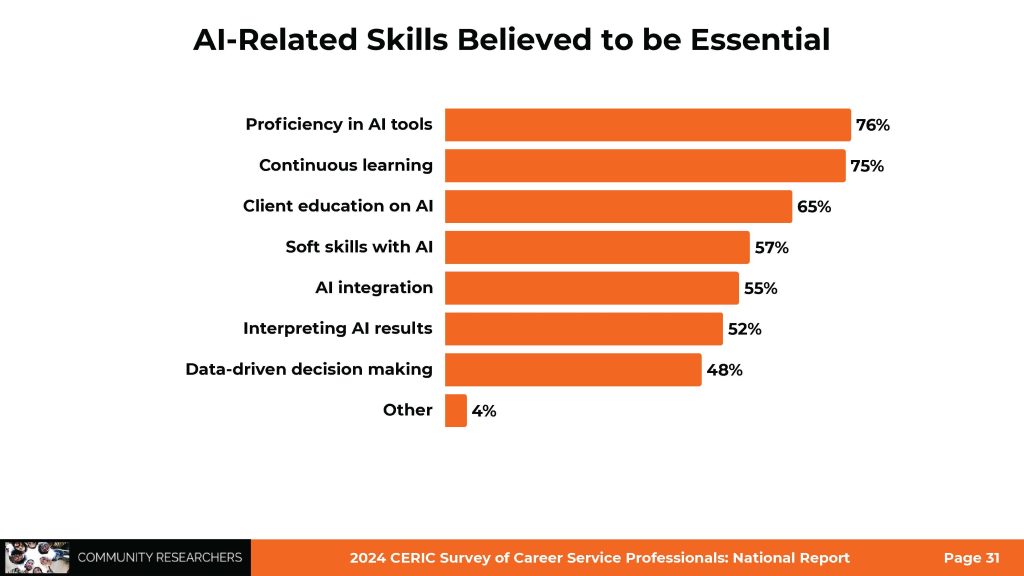
Moving forward with AI in career development
The 2024 CERIC Survey of Career Services Professionals confirms that AI is already shaping career services, but the field is still navigating how to use it effectively. As we continue to navigate this rapidly evolving reality, it is clear that training is essential. Equally vital: understanding and evaluating ethical implications of using these technologies in a human-centred field. Career professionals can work together to share AI best practices and advocate for ethical guidelines.
The conversation around AI in career development is just beginning. How are you using AI in your practice? What concerns or opportunities do you see? Share your insights in the comments.
If you’re looking to build your AI skills, don’t miss this upcoming webinar series from CERIC and Magnet, starting May 8: AI for Career Development in 2025: Practical Strategies for Preparing Clients and Practitioners for the Future of Work.
In keeping with the theme of the piece, this article was produced with support from ChatGPT.




